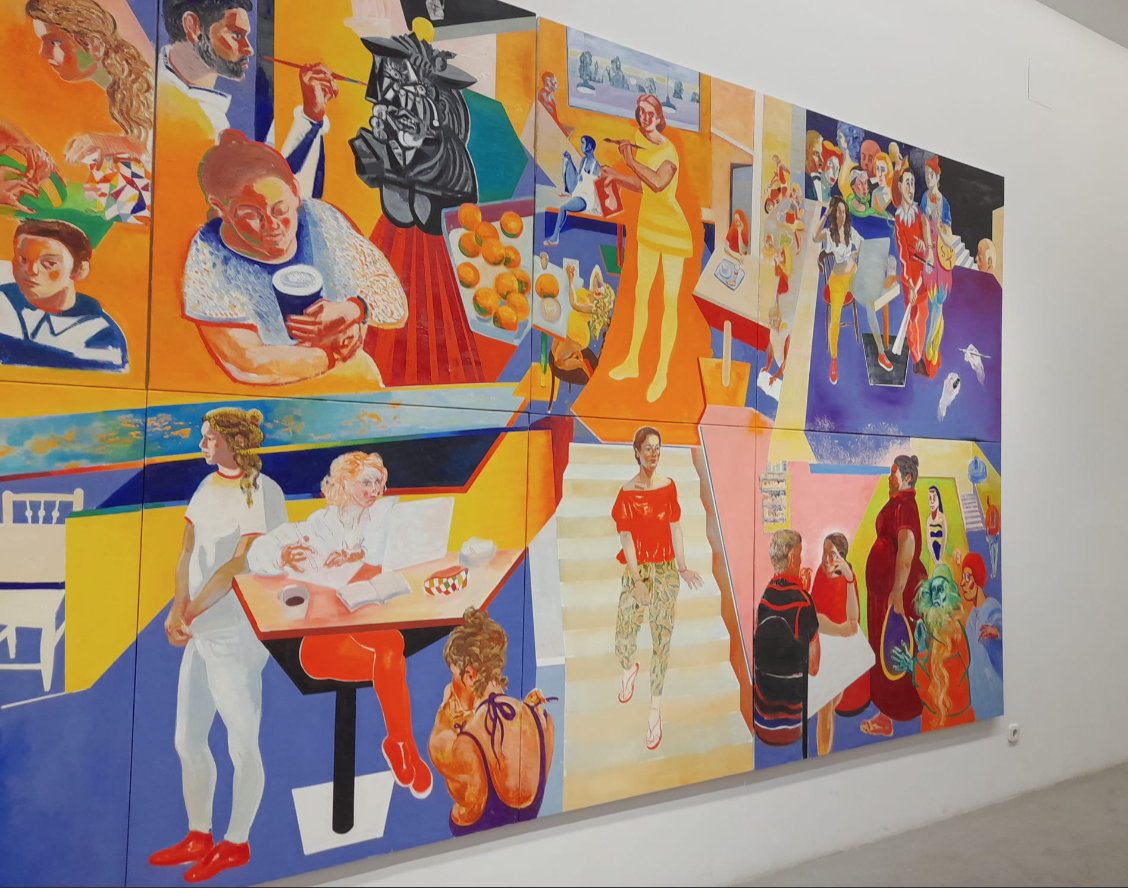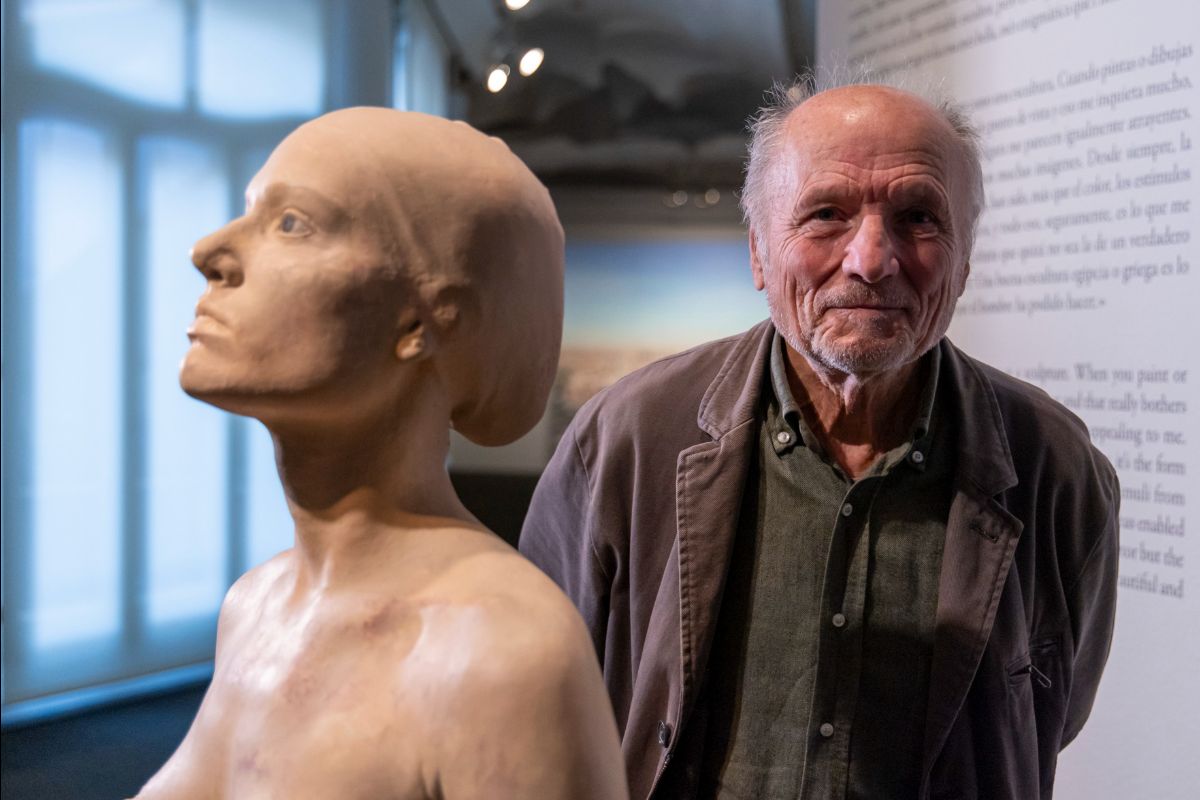news
The annual report on the state of culture and the arts in Catalonia 2022 analyzes the challenges of culture
The National Council for Culture and the Arts (CoNCA) has presented to the cultural sector the annual Report on the state of culture and the arts in Catalonia 2022, which presents an analysis of the cultural ecosystem and a reflection on key to the future as a basis for the proposals that must help face the challenges facing the cultural sectors. The event, which took place at the MACBA, included the round table "What response do public policies give to the current challenges of culture" in which Nicolás Barbieri, Marta Domènech, Salima Jirari and Pep Montes participated and which was conducted by Violeta Gumà, head of culture at the Catalan News Agency. In addition, the Report has been delivered to the President of the Parliament of Catalonia, Anna Erra, and to the Minister of Culture, Natàlia Garriga.
The Report is structured in five chapters. The first, "Events and trends", incorporates the story of how the cultural sectors have experienced the year 2022, a period marked by the resumption of activity during which the sectors have had to adapt to the changes that have emerged with the pandemic. This year this chapter includes three articles analyzing the intervention of culture in other areas of society: education, health and community action. From the review of the different sectors, we can highlight the slow recovery of the entire cultural field after the pandemic, which has not yet managed to reach the pre-covid-19 figures.
In addition, a certain optimism is detected in the digital sector and popular culture, while the rest of the sectors still speak of an incomplete recovery. The second chapter analyzes "The cultural policies of the Generalitat of Catalonia during 2022", a year with ordinary functioning of the legislative and executive bodies. Low legislative activity continues: in 2022 Parliament only approved a modification of the Catalan Cultural Heritage Law to introduce greater protection for emblematic establishments.
The rest of the proposals presented by the parliamentary groups have not succeeded or are pending processing. It should be noted that the new budgets included a considerable increase in the allocation of the Department of Culture by 24%, an increase that corresponds to 1.3% of the total budget of the Generalitat. The CoNCA is betting on establishing an amount of spending on culture per inhabitant instead of a percentage on the total budget of the Generalitat, because it is a measure that would help shield the public effort in culture against a future budget variation.
In 2022, public spending on culture by all Catalan administrations will be 1,235 million euros, an amount that represents 158 euros per inhabitant per year. The third chapter considers how cultural policy responds to the current challenges of culture. To do this, the contributions of twenty-six people familiar with cultural policies and the cultural and artistic sectors of our country have been taken into account, who have defined what these challenges are and who have made recommendations so that cultural policies help to face them.
The work carried out reaches the conclusion that it is necessary to advance in the recognition of the cultural rights of citizens as a basis for the construction of the culture of the future. Only by building a multifaceted cultural system where everyone recognizes each other will it be possible for culture to become a fundamental part of the well-being society. Other challenges identified are achieving effective parity in leadership positions, facing the technological challenge and the sustainable development agenda, and advancing the professionalization of the cultural sector.
The fourth chapter, "Culture in data", shows the main indicators of the country's cultural activity and includes a report on parity in leadership positions in the cultural sectors drawn up by CoNCA which shows that, despite the advances achieved, there is still a way to go in the field of culture to reach effective parity in leadership positions. In addition, this section constitutes an x-ray of the state of arts and culture in our country, and updates the impact of covid-19 on the Catalan cultural system as a whole. In this sense, it should be noted that in 2022 the VAB (Gross Added Value) of the overall Catalan economy is 8.3% higher than in 2019, while the turnover of the cultural sectors in 2022 is still 3% below that of 2019.
The covid-19 crisis has made evident and accelerated the structural changes that were being implemented for some time. As an example, we can mention the 41% drop in cinema audiences compared to before the pandemic, while subscriptions to digital audiovisual content platforms have grown by 70% between 2020 and 2022. From set of actions promoted by the Department of Culture during 2022, the report highlights two: the budget increase and the introduction of participatory processes in the definition of cultural policies, specifically in the National Pact for the Language and in the drafting of the draft law on the cultural rights of citizens.
As a conclusion, the report recommends consolidating these budget increases made by the Department of Culture, calls for the improvement of statistical data, asks that the legislative shortcomings of the country's cultural regulations be addressed and encourages to continue with the col· collaboration between institutions that enables the expansion of the Cultural Community, among others. In addition, the current lines of work of the CoNCA focused on the analysis and reflection of the issues that affect the cultural ecosystem of the country are detailed.









